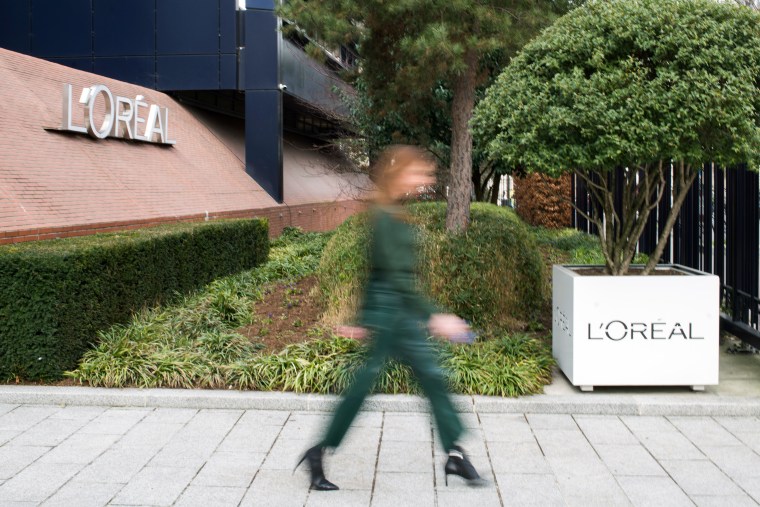[ad_1]
Studies associate relaxers with higher cancer risk
Concern about the health risks associated with chemical hair straighteners has grown over the last year since the National Institutes of Health released a study that found that women who used them frequently were more than twice as likely to develop uterine cancer as those who did not. Chemicals in the hair products, like parabens and phthalates, disrupt the hormone-regulating endocrine system, researchers said.
A similar study released this month by researchers at Boston University found that postmenopausal Black women who reported long-term use of chemical hair relaxers were at increased risk of uterine cancer.
The studies, however, do not go so far as to say the products cause cancer.
Most treatments for womb cancer result in infertility, and Black women are more likely to undergo hysterectomies.
L’Oréal did not reply to repeated requests for comment. Last year, it said the lawsuits had no legal merit. A spokesperson for Revlon declined to comment. Both companies have filed motions to dismiss the lawsuits.
“What I think we’re dealing with here is a product that is a conduit for severe reproductive harm that manifests itself in a number of different ways,” said Danielle Ward Mason, an attorney who is representing thousands of Black women in cases against the beauty companies. “But it’s all equally tragic. And it’s all emotionally taxing and devastating. And it’s all physically debilitating.”
More than 90% of her clients have had hysterectomies, while the rest have had one or more myomectomy procedures to remove uterine tumors or fibroids, said Mason, a managing partner at Bullock Ward Mason.

‘Nothing can prepare you for this’
The increased attention on the possible dangers of hair-straightening products is little salve for women like Bree-Shawna Watts, 32, who had a hysterectomy last year after she was diagnosed with uterine cancer.
Watts underwent surgery in April 2022 to remove what her doctors believed was a fibroid in her uterus that was causing her to have very heavy periods and serious pelvic pain. Her doctor, she said, hoped to save her uterus during the procedure so she would still be able to have children. But she recalled waking up after her surgery and asking a nurse whether everything had gone as planned.
“And she just looked down, and she looked so sad,” Watts said, her voice breaking as she cried. “The way she looked at me was like, ‘You have no idea what is about to happen.’”
The nurse told her that her uterus could not be saved. The most crushing news came later, when she learned from her doctor that she had uterine sarcoma, a type of cancer.
“And she said, ‘Because it had spread, I had to take everything except the ovary and the fallopian tube,’” Watts said. “So she took my uterus, my ovary, my fallopian, my perimetrium.“
Her doctor assured her that they would fight the cancer that had also been found in the wall of her abdomen and suggested she quickly retrieve eggs before her remaining ovary was removed.
Watts said she opted not to harvest her eggs because it required her to inject the hormone estrogen into her body and she did not want to risk worsening her diagnosis — a decision she now regrets.
She underwent 25 rounds of radiation and also started hormone therapy, which she said she will have to continue for 10 years.
After her operations and 25 rounds of radiation, Watts said, she “plummeted straight into menopause at 31,” an ordeal she described as hellish.
“I thought I was so strong,” she said, “but … actually, nothing can prepare you for this.”
[ad_2]
Source link
